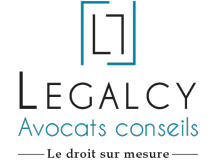The cooling-off period in the sale mandate
Real Estate Law
Source: Supreme Court, 1st Civil Ch., July 1st 2015, n° 14-15.753
In accordance with the article L.121-26 of the Consumer Code, as valid before the entry into force of the Law n°2014-344 of March 17th 2014, the first chamber of the Supreme Court criticized the judgement rendered by the Court of Appeal.
As a reminder, this text indicated that before the expiry date of the seven-day cooling-off period provided in the article L.121-25, no one can demand or obtain from the client, directly or indirectly, under any circumstance or in any manner, neither a counterbalance nor a commitment, nor provide a service of any nature; that the lack of knowledge of those public order provisions results from the nullity of the mandate.
In the present case, a SCI (Société Civile Immobilière) gave a mandate to a company having to do with real estate transactions, which, by contract, is subject to the provisions of the Consumer Code related to doorstep selling, for the purpose of the sale of an apartment for the price of €2,350,000.00, including a remuneration of €80,000.00, and a penal clause, in the hypothesis where the principal would refuse to sign the sale agreement at the price agreed with any buyer introduced by the agent.
However, the society in question received an offer to purchase from a couple, at the expected price, before the end of the delay of the cooling-off period, and the SCI decided to withdraw the property from the sale, because of the amount of the appreciation tax, which it would have had to pay. The real estate transactions society notified it a writ for the payment of the penal clause.
The Court of Appeal granted the society's request and condemned the SCI to pay it the sum of €80,000.00 under the penal clause. For the Court of Appeal, by receiving the offer of purchase from the couple, within the cooling-off period, the real estate agent did not breach to the provisions of the article L.121-26 of the Consumer Code, which only forbids for the agent to obtain from his client a counterbalance or a commitment or to provide a service of any nature.
The Supreme Court criticized the judgment, indicating that it resulted, from the statements of the Court of Appeal that the society had started to complete the mandate before the expiry date of the legal delay of cooling-off, by searching buyers.
History
-
PASSIVE SMOKING IN COMPANIES: The employer is responsible
Published on : 18/08/2015 18 August Aug 08 201520152015 / AoûtLabour Law Source: Supreme Court. Social Ch. 3rd June 2015, n°14-11324 In this case, an employee, hired as a designer by a society, was on sick leave....
-
Employment contract and applicable law
Published on : 18/08/2015 18 August Aug 08 2015201520142015 / Août2014 / AoûtSource: Supreme Court, Social Ch., 9th July 2015, n° 14-13.497 Labour Law / International Law An employee had been hired for a part-time work, as a progr...
-
The cooling-off period in the sale mandate
Published on : 18/08/2015 18 August Aug 08 201520152015 / AoûtReal Estate Law Source: Supreme Court, 1st Civil Ch., July 1st 2015, n° 14-15.753 In accordance with the article L.121-26 of the Consumer Code, as valid...
